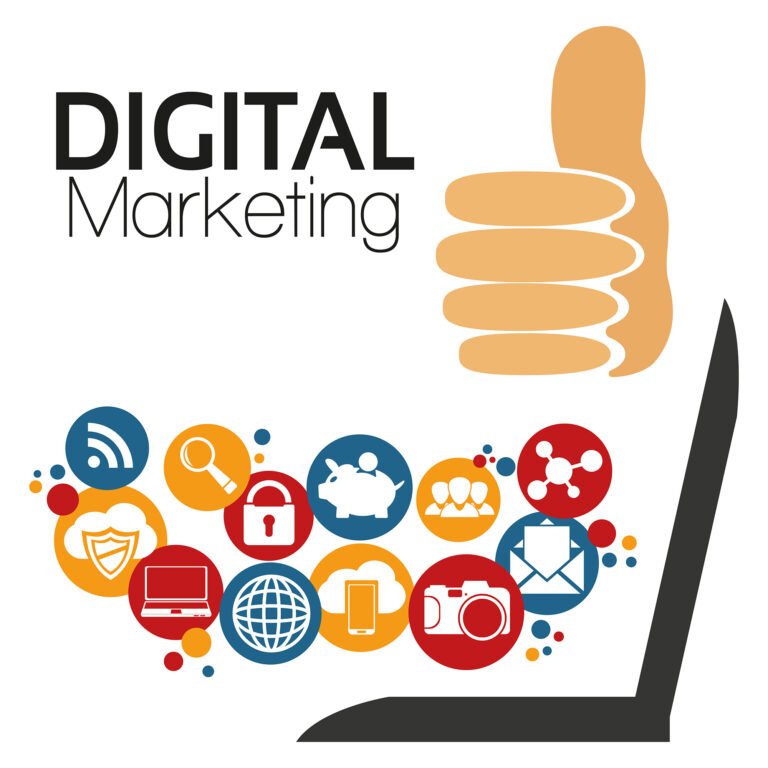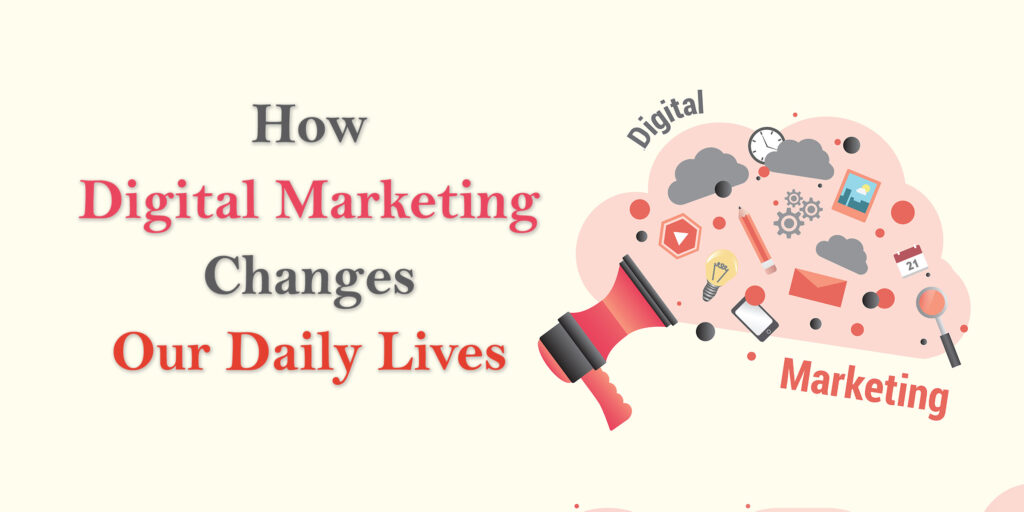In today’s hyper-connected world, digital marketing has become an integral part of our daily lives. From the moment we wake up and check our smartphones to the late-night scrolling through social media, digital marketing strategies are constantly at play. This article delves into the profound impact of digital marketing on our daily lives, exploring its reach, influence, and the ways it has revolutionized the way we live, work, and interact.
1. The Digital Marketing Landscape
Digital marketing encompasses a wide range of strategies and channels designed to promote products, services, or brands through online platforms. The primary components of digital marketing include:
1.1 Social Media Marketing
Platforms like Facebook, Instagram, Twitter, and LinkedIn have become powerful tools for businesses to engage with their target audience, build brand awareness, and drive sales.
1.2 Content Marketing
Content in the form of blogs, videos, podcasts, and infographics is created to provide value, establish authority, and attract potential customers.
1.3 Search Engine Optimization (SEO)
SEO techniques optimize websites to rank higher on search engine results pages (SERPs), increasing organic traffic and visibility.
1.4 Email Marketing:
Email campaigns are used to nurture leads, retain customers, and deliver personalized content directly to inboxes.
1.5 Pay-Per-Click Advertising (PPC)
Advertisers pay for each click on their ads, making this a cost-effective method for driving traffic and conversions.
1.6 Influencer Marketing
Leveraging influencers to endorse products or services can boost credibility and reach specific demographics.
2. Impact on Daily Life
2.1 Personalized Shopping Experience
One of the most noticeable impacts of digital marketing is the personalized shopping experience it offers. Algorithms and data analysis track our online behavior, allowing companies to tailor their marketing messages and product recommendations. For instance, platforms like Amazon use this data to suggest products we might like based on our past purchases and browsing history.
2.2 Social Media Influence
The rise of social media platforms has transformed the way we make purchasing decisions. People often rely on reviews, recommendations, and influencer endorsements on platforms like Instagram, YouTube, and TikTok before making a purchase. Businesses understand the power of social media influencers and collaborate with them to reach their target audience effectively.
2.3 Targeted Advertising
Digital marketing allows businesses to target specific demographics, behaviors, and interests with pinpoint accuracy. This results in less intrusive advertising, as we are more likely to encounter ads that align with our preferences and needs. Advertisers use data analytics to identify the most receptive audience segments, ensuring that their messages are seen by the right people.
2.4 Convenience and Accessibility
Online shopping has made our lives more convenient than ever. We can browse products, compare prices, and make purchases from the comfort of our homes or on the go. E-commerce websites, coupled with digital marketing strategies, have reshaped the retail landscape, and consumers appreciate the ease of finding what they need without leaving their homes.
2.5 Information at Our Fingertips
The availability of information has dramatically increased due to digital marketing efforts. We can access reviews, product details, and educational content on virtually any topic. Content marketing has made it possible for businesses to share valuable information with their audience, building trust and brand loyalty.
2.6 Job Opportunities
The digital marketing industry has seen explosive growth, creating numerous job opportunities in areas such as content creation, SEO, social media management, and data analytics. Many individuals have found new career paths in this sector, while businesses rely on digital marketing professionals to promote their products and services effectively.
3. Challenges and Concerns
While digital marketing offers numerous benefits, it also raises concerns and challenges:
3.1 Privacy Concerns
The collection and use of personal data for targeting can raise privacy concerns. Data breaches and misuse of personal information are significant worries in the digital age.
3.2 Information Overload
The constant bombardment of digital marketing messages can lead to information overload and consumer fatigue. It becomes challenging to distinguish between genuinely valuable content and advertising.
3.3 Fake News and Misinformation
The speed at which information spreads on digital platforms has given rise to fake news and misinformation. Digital marketers must navigate the fine line between truthful promotion and deceptive tactics.
3.4 Ad Blockers
Many users employ ad blockers to eliminate unwanted ads, challenging the effectiveness of certain digital marketing efforts.
3.5 Ethical Dilemmas
Digital marketers often face ethical dilemmas, such as whether to use persuasive techniques that may manipulate consumers.

4. Future Trends in Digital Marketing
As technology continues to evolve, digital marketing will also see new trends and innovations:
4.1 Artificial Intelligence (AI) and Machine Learning
AI-powered algorithms will enhance personalization and data analysis, providing even more tailored marketing experiences.
4.2 Voice Search Optimization
With the rise of virtual assistants like Siri and Alexa, optimizing content for voice search will become crucial.
4.3 Video Marketing Dominance
Video content will continue to dominate digital marketing, with short-form videos, live streams, and interactive content gaining popularity.
4.4 Augmented Reality (AR) and Virtual Reality (VR)
AR and VR technologies will enable immersive marketing experiences, allowing customers to interact with products virtually.
4.5 Sustainability and Ethics
Consumers are increasingly conscious of sustainability and ethical practices. Brands that align with these values will gain an edge in digital marketing.
Conclusion
Digital marketing has fundamentally transformed the way we live our daily lives. It has reshaped how we shop, make decisions, and access information. While it offers numerous benefits, it also poses challenges and ethical considerations. As technology continues to advance, the impact of digital marketing on our lives will only grow, making it crucial for both consumers and businesses to stay informed and adapt to this ever-changing landscape.
For more information, visit Bel Oak Marketing.





